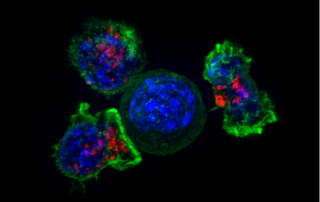Two new studies show how to enhance effectiveness of cancer immunotherapy
Source: www.news-medical.net Author: Reviewed by Emily Henderson, B.Sc. Two new studies revealed that anti-PD-1 immunotherapy given before surgery was safe and effective for patients with oral-cavity squamous cell carcinoma (OCSCC) and identified potential molecular biomarkers in the blood and tumors of patients that would show how likely it is that someone would respond to immunotherapy. The studies, recently published in Cell Reports Medicine, were a collaborative effort between MUSC Hollings Cancer Center, UCLA Jonsson Comprehensive Cancer Center and Winship Cancer Institute of Emory University. Due to the highly invasive and resistant nature of OCSCC, researchers looked to anti-PD-1 immune checkpoint inhibitors to improve outcomes as this type of immunotherapy has revolutionized the way patients with advanced malignancies are treated. OCSCC, a subset of head and neck cancer, is prevalent in South Carolina due to the history of tobacco use. These cancers oftentimes require complicated surgeries that may be disfiguring, as treatment may involve removing all or a portion of the jawbone and tongue. David Neskey, M.D., a Hollings head and neck cancer specialist and co-senior author of the studies, said 50% of these patients will have a recurrence, and only 60% of patients are alive five years later. "This cancer can impact a patient's ability to talk and breathe," Neskey said. "It can impact a patient's ability to go out to a restaurant or socialize with friends and family. It's one of the reasons so many head and neck cancer doctors are seeking ways to improve outcomes for these patients." [...]

